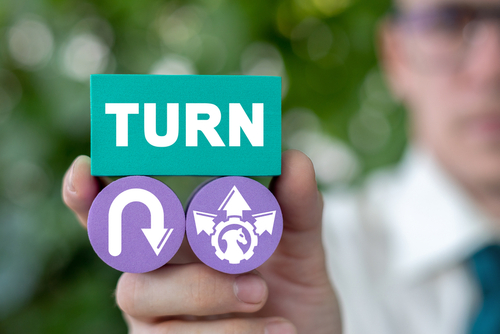Hosea 14:2-10, Micah 7:18,20
Always read on Shabbat between Rosh Hashanah and Yom Kippur, this Haftarah calls for repentance and shows its practical effects. This Shabbat is named “Shabbat Shuva” after its Haftarah’s opening word:
| Hosea 14:2 | הושע י״ד:ב |
| Return, O Israel, to the Lord your God, for you have stumbled in your iniquity. | שׁ֚וּבָה יִשְׂרָאֵ֔ל עַ֖ד ה’ אֱלֹקיךָ כִּ֥י כָשַׁ֖לְתָּ בַּעֲוֺנֶֽךָ׃ |
After this chastisement, Hosea goes on to make the case for repentance. Unusually (see “Haftarah Halakhah”, below), the Haftarah continues with words from a second prophet, Micah. He affirms that God will, in fact, receive this repentance and forgive them, due to His covenant with them and their forefathers.
Haftarah Breakdown
Hosea, verses 14:2-4: If His people return from their ways…
| Hosea 14:3 | הושע י״ד:ג |
| Take words with yourselves and return to the Lord. Say to Him: “Forgive all guilt And accept what is good, and let us render [for] bulls [the offering of] our lips…” | קְח֤וּ עִמָּכֶם֙ דְּבָרִ֔ים וְשׁ֖וּבוּ אֶל־ה’ אִמְר֣וּ אֵלָ֗יו כָּל־תִּשָּׂ֤א עָוֺן֙ וְקַח־ט֔וֹב וּֽנְשַׁלְּמָ֥ה פָרִ֖ים שְׂפָתֵֽינוּ׃ |
Verses 14:5-8:… God will reward them and those who cleave to them.
| Hosea 14:6 | הושע י״ד:ו |
| I will be like dew to Israel, they shall blossom like a rose; it shall strike its roots like Lebanon. | אֶהְיֶ֤ה כַטַּל֙ לְיִשְׂרָאֵ֔ל יִפְרַ֖ח כַּשּֽׁוֹשַׁנָּ֑ה וְיַ֥ךְ שָׁרָשָׁ֖יו כַּלְּבָנֽוֹן׃ |
Verses 14:9-10: Israel will no longer associate with idols, but rather with God.
| Hosea 14:9 | הושע י״ד:ט |
| Ephraim [shall say,] “What more have I to do with idols?” [God shall say,] “I will answer him and look upon Him [saying]: ‘I am like a leafy cypress tree; from Me your fruit is found.’” | אֶפְרַ֕יִם מַה־לִּ֥י ע֖וֹד לָֽעֲצַבִּ֑ים אֲנִ֧י עָנִ֣יתִי וַאֲשׁוּרֶ֗נּוּ אֲנִי֙ כִּבְר֣וֹשׁ רַֽעֲנָ֔ן מִמֶּ֖נִּי פֶּרְיְךָ֥ נִמְצָֽא׃ |
Micah, verses 7:18,20: God will keep his covenant, and maintain the Jewish people.
| Micah 7:18 | מיכה ז:י״ח |
| Who is a God like You, Who forgives sin and passes over transgression for the remnant of His heritage? He does not maintain His anger forever, for He desires lovingkindness. | מִי־קל כָּמ֗וֹךָ נֹשֵׂ֤א עָוֺן֙ וְעֹבֵ֣ר עַל־פֶּ֔שַׁע לִשְׁאֵרִ֖ית נַחֲלָת֑וֹ לֹא־הֶחֱזִ֤יק לָעַד֙ אַפּ֔וֹ כִּֽי־חָפֵ֥ץ חֶ֖סֶד הֽוּא׃ |
Haftarah Halakhah
Each Haftarah must be from a single prophetic book except among the twelve “minor” prophets, as they constitute one book, according to the Talmud:
| Megillah 24a | מגילה כ״ד עמוד א |
| It is taught in a Baraita: One may not skip from [the book of one] prophet to [another] prophet. [However,] one may skip amongst the twelve books of Prophets provided that one does not skip from the book’s end to its beginning. | תניא אידך אין מדלגין מנביא לנביא ובנביא של שנים עשר מדלג ובלבד שלא ידלג מסוף הספר לתחילתו: |
Connections
Reish Lakish bases astonishing statements about the power of repentance upon the Haftarah’s first verse:
| Yoma 86b | יומא פ״ו עמוד ב |
| Reish Lakish said: “Great is repentance, as [one’s] intentional sins are counted for him as unwitting transgressions, as [Hosea 14:2] states: ‘Return, Israel, to the Lord your God, for you have stumbled in your iniquity’ […]
[The Gemara asks:] But didn’t Reish Lakish say: “Great is repentance, as one’s intentional sins are counted for him as merits, as [Ezekiel 33:19 ]stated: ‘And when the wicked turns from his wickedness and does justice and righteousness he shall live?’” [The Gemara reconciles:] This is not difficult: Here when one repents out of love, [his sins become merits]; there when one repents out of fear, [his sins become unwitting transgressions.] |
אמר ריש לקיש גדולה תשובה שזדונות נעשות לו כשגגות שנאמר (הושע יד, ב) שובה ישראל עד ה’ אלהיך כי כשלת בעונך … והאמר ריש לקיש גדולה תשובה שזדונות נעשות לו כזכיות שנאמר (יחזקאל לג, יט) ובשוב רשע מרשעתו ועשה משפט וצדקה עליהם (חיה) יחיה לא קשיא כאן מאהבה כאן מיראה
|
Another sage, Rava, makes a similar point about those who forgive others:
| Rosh Hashanah 17a | ראש השנה י״ז עמוד א |
| Rava said: “Whoever forgoes his reckonings with others, [God] forgoes punishment for all his sins, as [Micah 7:18] states: “He bears sin and forgives transgression”. Whose sins does He bear? The sins of one who forgives sins [done to him]. | רבא אמר כל המעביר על מדותיו מעבירין לו על כל פשעיו שנאמר נושא עון ועובר על פשע למי נושא עון למי שעובר על פשע |
Hosea 14:3 is a basis for establishing prayer as a substitute for the Temple service:
| Sefer HaChinukh 185 | ספר החינוך קפ״ה |
| This commandment [of the Yom Kippur service] is practiced at the time of the [Temple]. Now that, due to our iniquities, we have neither Temple nor high priest, neither [priestly] garments nor sacrifices, all of Israel nowadays are accustomed to serve [God] through prayers and supplications as [Hosea 14:3] states, “Let us render [for] bulls [offered in the Temple], [the offering of] our lips.” | ונוהגת כל מצוה זו בזמן הבית. ועכשיו בעונותינו שאין לנו לא מקדש ולא כהן גדול ולא בגדי שרד ולא קרבנות, נהגו כל ישראל לעבד ביום זה בתפלות ובתחנונים, וכמו שכתוב (הושע יד ג) ‘ונשלמה פרים שפתינו’. |
With emendations, biblical translations are by Rabbi A. J. Rosenberg and other translations are from Sefaria.org.
To dedicate, comment, or subscribe, email zbeer570@gmail.com.



